Helen's Law: Destroying remains 'should be a separate crime'
- Published
"We, as families, have to suffer a lifetime of unanswered questions"
He was described as "the life and soul" of his rugby club but even two years on, Michael O'Leary's family still have unanswered questions about his murder.
The father-of-three was killed by Andrew Jones who then burned the body behind his house in Carmarthenshire.
Jones was jailed for life for the murder in January 2020.
However, Michael's son, Wayne O'Leary, is backing a campaign calling for the desecration of a body to be made a separate crime.
Dubbed Helen's Law 2, the aim is to acknowledge the additional agony caused when a body is concealed or destroyed.
"As families we have to suffer a lifetime of unanswered questions," said Mr O'Leary.
"Why should they come out after 20, 30 years and carry on with their lives, when we have all those unanswered questions for the rest of ours?"
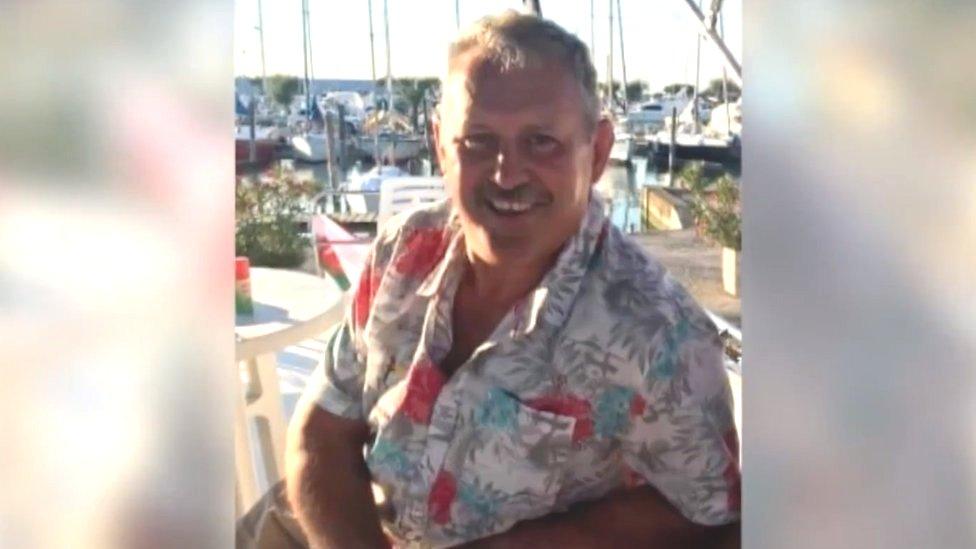
Michael O'Leary's remains have never been recovered
Jones lured Michael O'Leary to his property near Carmarthen on a wet winter's night after discovering he was having an affair with his wife.
He shot his once-close friend, burned the body on a pile of wooden pallets and set about making it appear Michael O'Leary had killed himself.
"I still don't believe it at times", said Wayne.
"Yes that dad has gone, but the way he went and what happened after that is totally horrific."
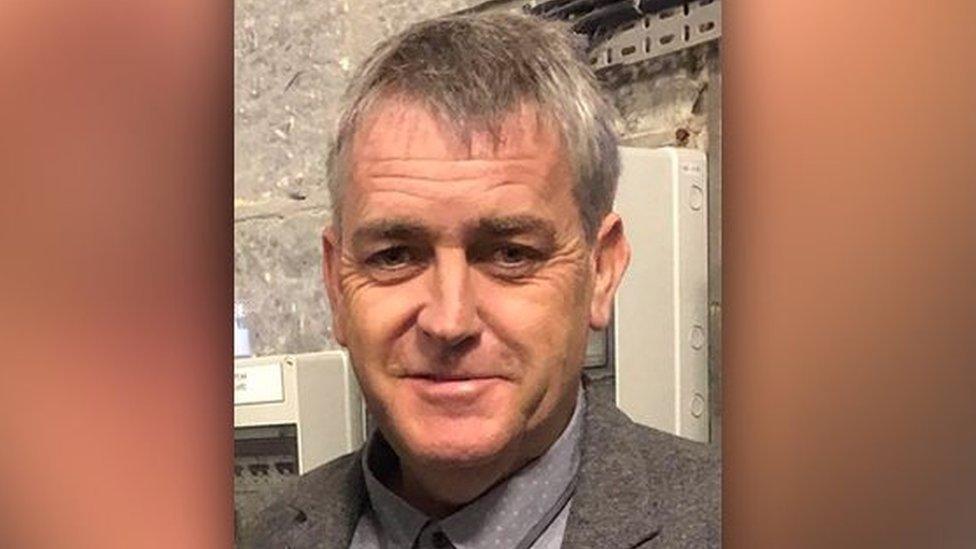
Andrew Jones is serving a life sentence for killing Michael O'Leary
During the investigation, detectives found a piece of small intestine at Jones' yard on Cincoed Farm, in Cwmffrwd.
The tissue's DNA profile matched Mr O'Leary's. It is the only part of his body ever found.
"That's the hardest part for us as a family moving on, is not knowing what dad suffered," said Wayne.
"What actually happened and, eventually, what actually happened to his body and the remains?
"Due to developments with DNA and forensics, there are more and more cases of murders with no body.
"These people go to great lengths to get rid of any evidence, including the body, and you very rarely see them being punished for that as well as the actual murder. The system needs to change."
The family is supporting a campaign that was brought by Marie McCourt.
She spent five years campaigning to stop murderers being released on parole until they reveal the location of their victim's remains.
The legislation is known as Helen's Law in memory of her 22-year-old daughter who was killed as she walked home in Merseyside in 1988.

Helen McCourt was murdered by Ian Simms in 1988
Her killer Ian Simms is serving a life sentence but has never revealed where her remains are.
Now Mrs McCourt is taking her campaign further by calling for two brand new criminal offences - desecration of a corpse and concealing a body - to reflect the "additional life sentence" to the victim's families.
"Our current legislation is unfit for purpose [because] there is a huge gap in our legal system that needs filling," she said.
"I always thought why wasn't he [Simms] charged with preventing a burial, for desecration of a body? These are very important things for the families, who have not only had a loved one taken away but they are in limbo for the rest of their lives."
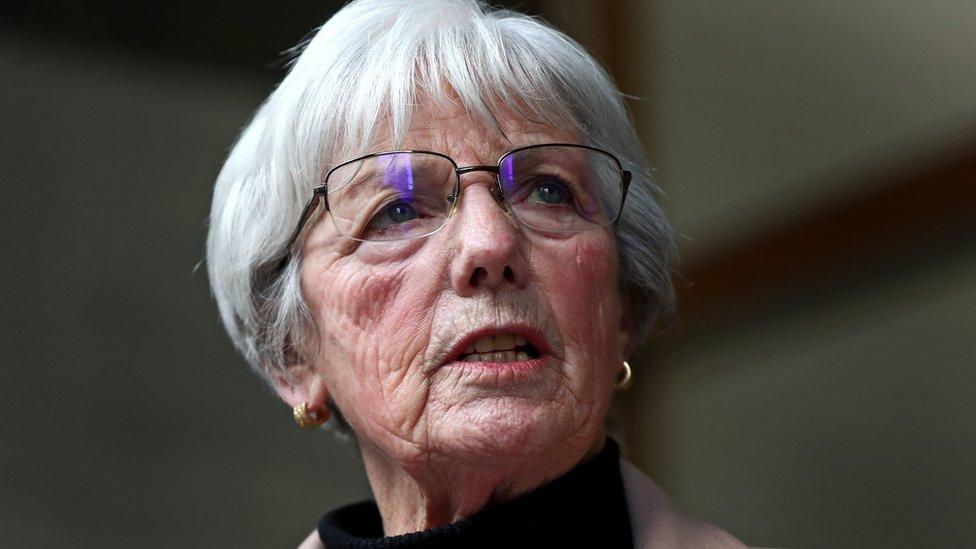
Marie McCourt had hoped her daughter's killer would never get parole
Mrs McCourt said she had been driven by the rise in cases where killers not only hide their victims' bodies, but attempt to destroy them in a bid to evade conviction.
"Since 2007/8, there have been 54 convictions of homicide without a body being found," she said.
"As forensic detective methods become more sophisticated, killers are resorting to ever-desperate measures to hide evidence of their crimes.
"The distress to the victim's family is untold and yet, all too often, the killer receives no further punishment for these acts which were committed after the initial homicide [but] these are calculated, cruel acts."
The campaign has been raised in the House of Lords as a proposed amendment to the Police, Crime, Sentencing and Courts Bill, which is currently going through Parliament.
A UK government spokesperson said: "These crimes are particularly sickening and offenders can face the full force of the law under existing offences, not least murder which carries a mandatory life sentence."

"We think about dad all the time", says Michael O'Leary's son Wayne
Carmarthen East and Dinefwr MP Jonathan Edwards said the extra suffering to victims' families caused by killers desecrating or hiding a body should be reflected in law.
He added: "You either bring in a new crime or there are clear sentencing guidelines that, when a murderer is found guilty, there is an extra punishment resulting from that.
"It's always right to challenge the law as it stands and there will be plenty of opportunities in Parliament to raise the new campaign"
For Michael O'Leary's family, the horror of the past two years never leaves them.
"We always think about dad. We think about him everyday," said Wayne.
"There are so many answers we haven't had, and probably won't have. But we have to move on, and put on a brave face."
- Published23 December 2020

- Published19 October 2020
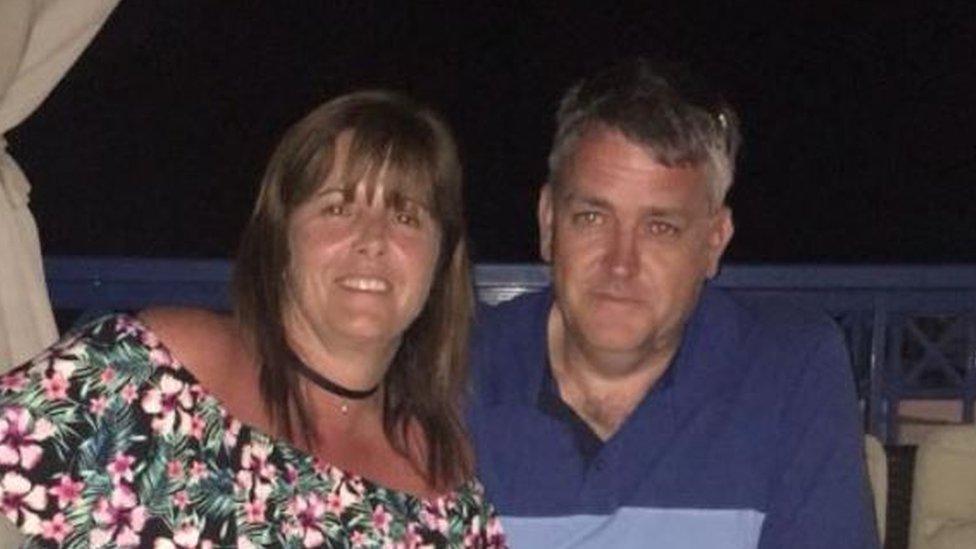
- Published5 October 2020

- Published5 October 2020
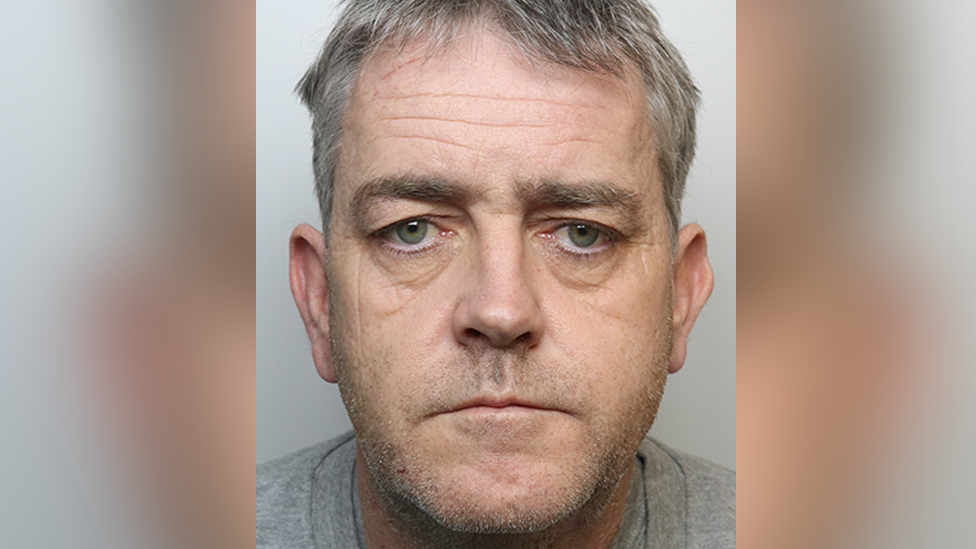
- Published25 September 2020
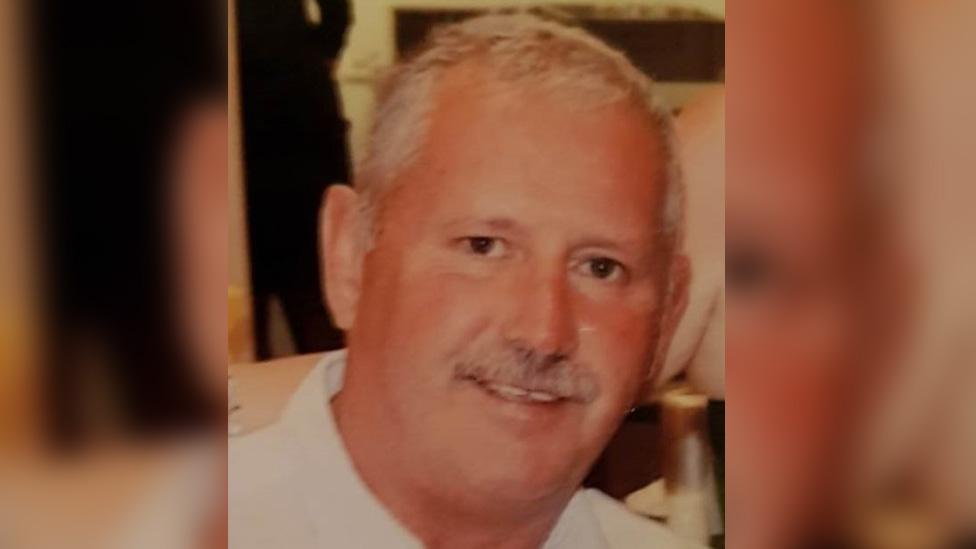
- Published23 September 2020

- Published18 September 2020
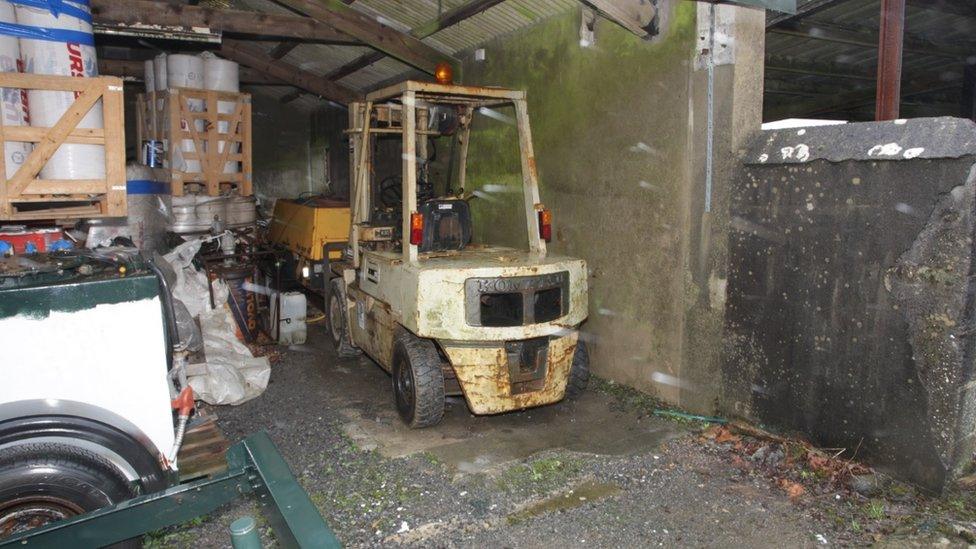
- Published15 September 2020

- Published14 September 2020

- Published3 March 2020
